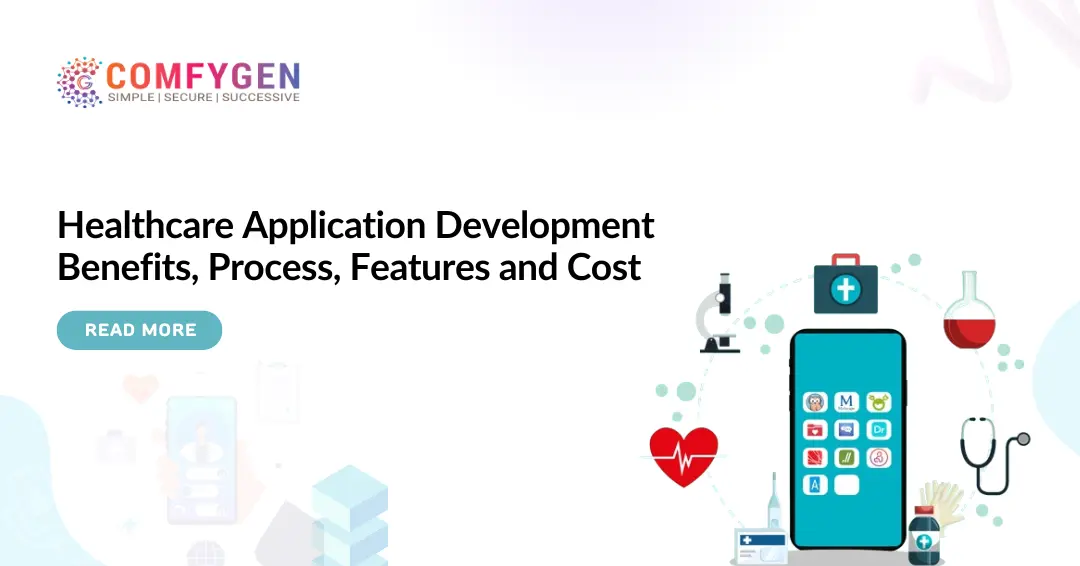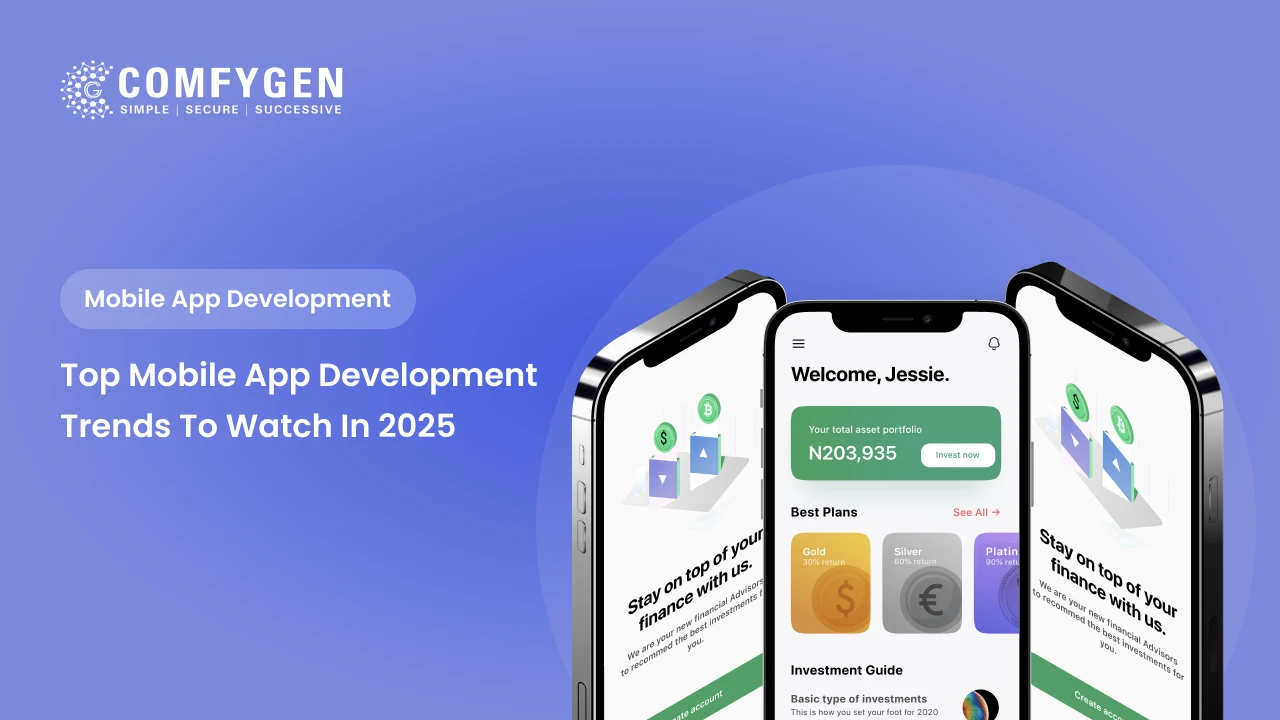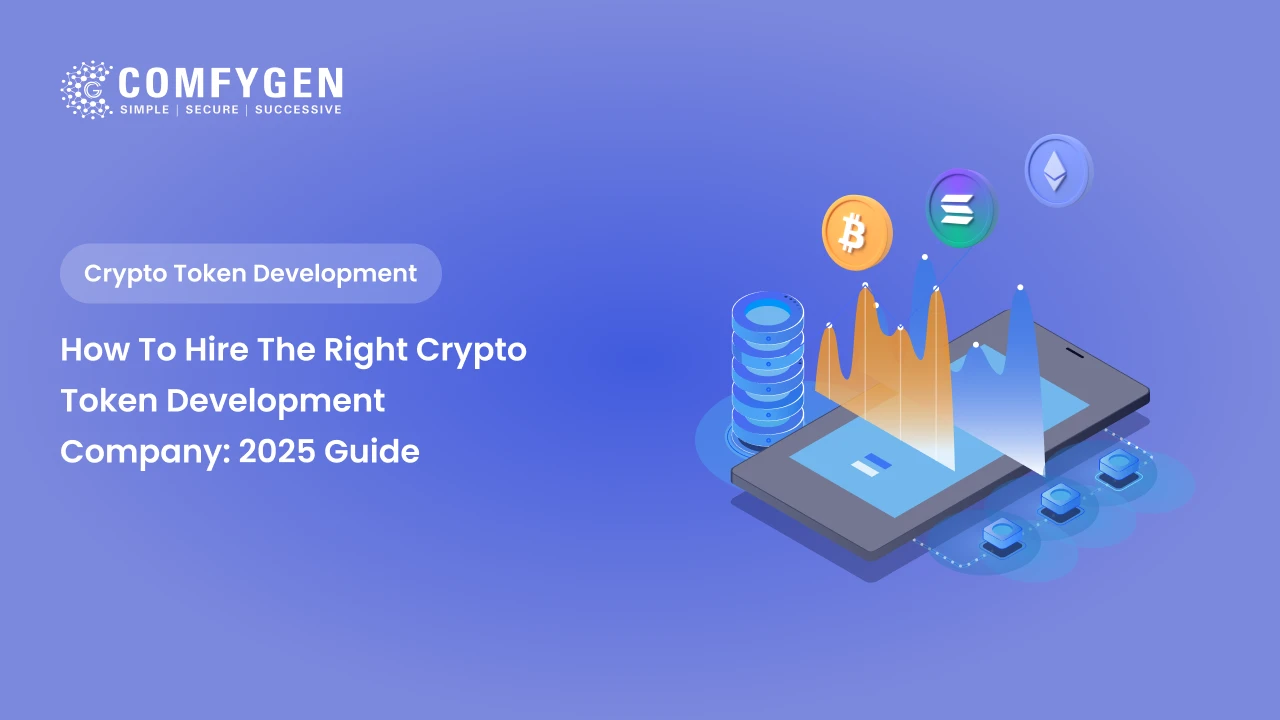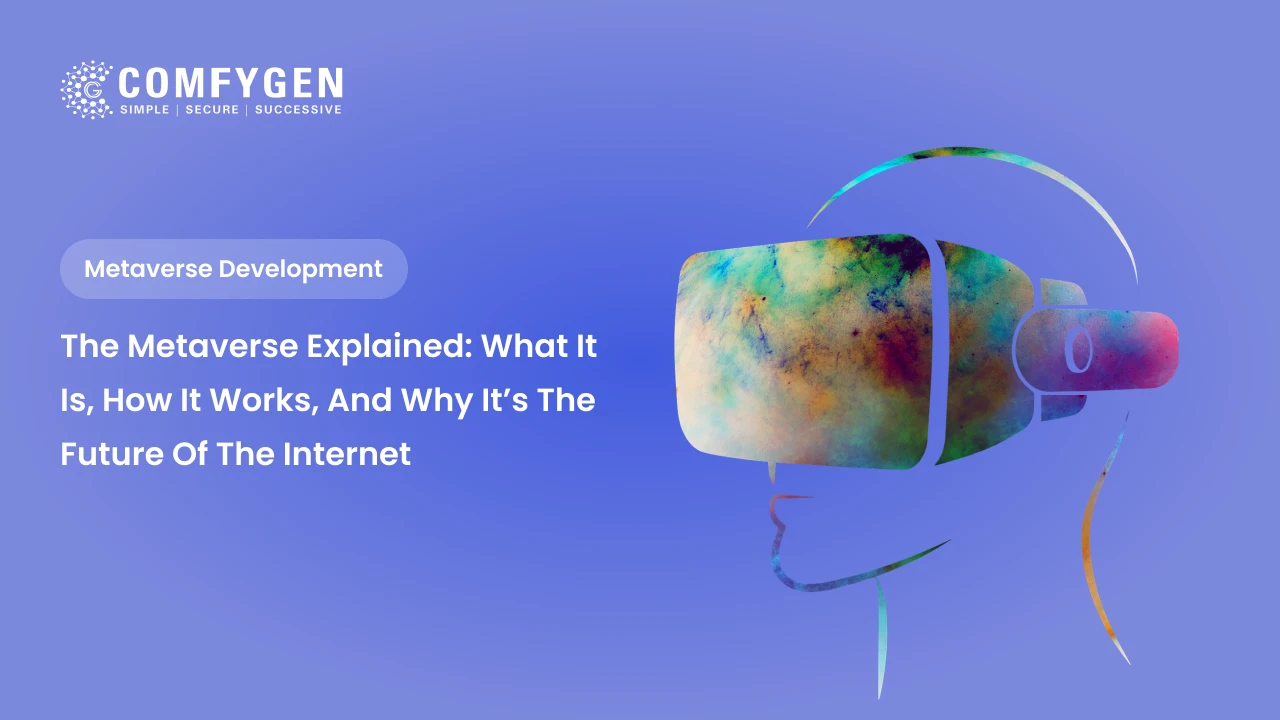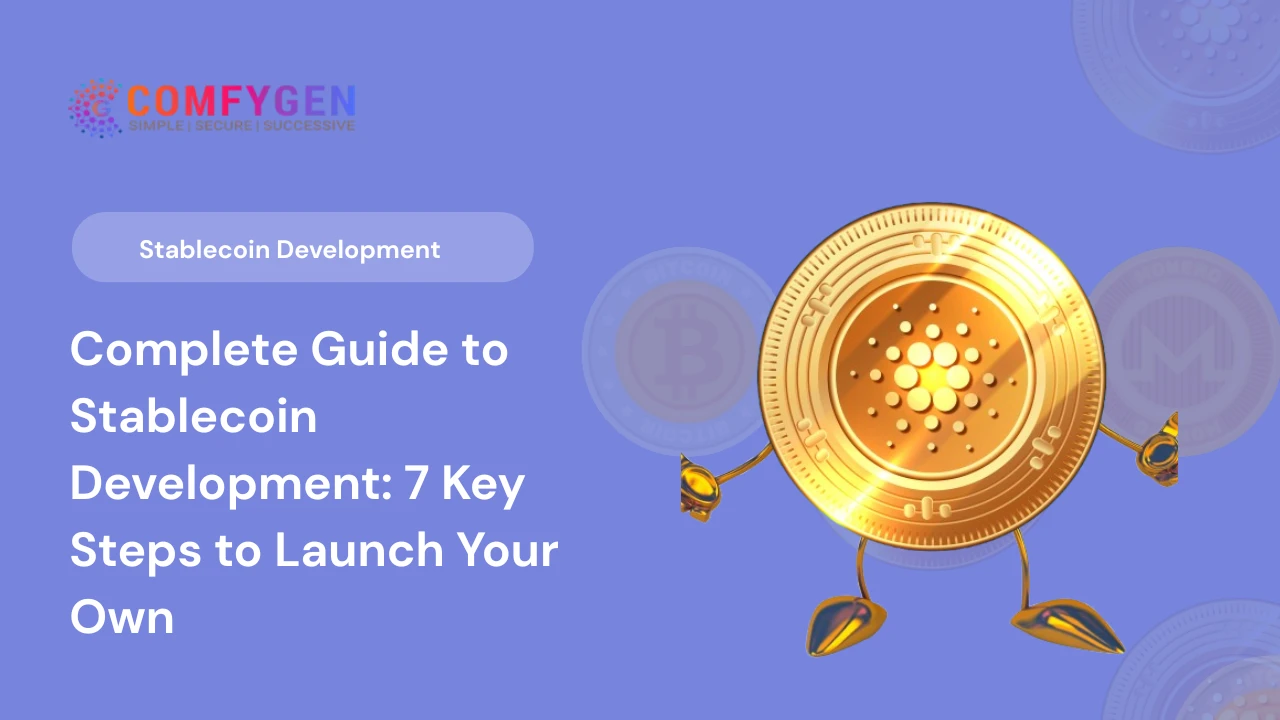Healthcare Application Development | Benefits, Process, Features and Cost
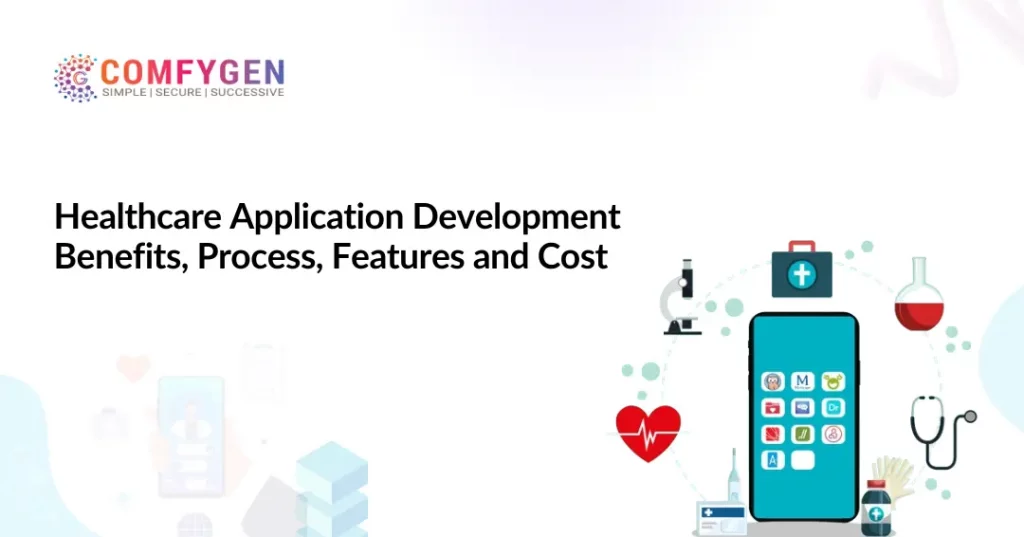
In the years after the 2020 pandemic, there is a global realization that the healthcare systems around the world have not stayed prepared for a sudden pandemic outbreak. It is the responsibility of people, companies, and government to ensure that such a situation does not arise but rather gets quickly mitigated in the future.
Now that the world has successfully battled a life-threatening pandemic, the focus is on strengthening the global healthcare ecosystem. Med Tech and healthcare application development play a major role in improving the healthcare sector and providing healthcare services all around the world. The pandemic has taught people that preparedness matters the most in case of healthcare emergencies.
So, health consciousness has increased in people’s minds. They are trying to incorporate health in multiple areas of their lives, including their mobile phones and applications. The 2020 pandemic has made it clear that the accessibility of healthcare services decides how easily a healthcare emergency is tackled. Mhealth apps or digital healthcare apps achieve this goal of making healthcare services and institutions accessible digitally. Since 2020, the demand for healthcare apps and Healthcare App Development Services has been increasing consistently.
In 2020, the demand for mobile medical applications went up by a whopping 66 percent. Today, mobile health applications, health tracking applications, and teleconsultation apps are present on almost all mobile phones. If the pandemic was an upsurge period, then the post-pandemic era would be the golden period of growth for healthcare app developers.
Today, mHealth applications are a great way for medical companies and institutions to connect with their patients. If you want your hospital or medical service company to increase its efficiency and patient welfare, then you need to consult with a good Healthcare App development company in the USA and create a good healthcare app from scratch.
Before investing in healthcare application development, we recommend that you research the process, benefits, costs, features, and other details related to a successful healthcare app. We have gathered information on the basics of healthcare application development to help you get started.
Overview of the Healthcare Apps Market
Before you and your team venture into healthcare app development services and testing, you need to develop a thorough understanding of how the digital health app development market works. A view of its present state and future projection will help your team scope out the revenue growth opportunities and market segments that will be the most profitable.
Here is some information about the healthcare apps market globally before understanding the process of development further. The information below will help you understand the target market for a new healthcare application.
- According to studies, about 54 percent (More than half) of patients want to shift from regular physical health appointments to mobile applications and interactions.
- The global mHealth application market was valued at and it will only grow tremendously in the next few years. The valuation of the global healthcare app development market is set to reach the mark of USD 861.40 billion by the year 2030.
- The CAGR for the time period of 2023 to 2030 for the healthcare app market will be close to 40 percent. This tremendous growth in revenue and market valuation rides on the integration of AI, ML, and other assistive technologies.
- Almost 60 percent of people who have a smartphone have installed a healthcare and vitals tracking app on their phones at least once.
- Rehabilitation after medical procedures and keeping in contact with the hospital are the top functionalities for people who download healthcare apps on their smartphones in this post-pandemic era.
According to these statistics, it is clear that the demand for healthcare applications has seen a natural increase among the common people. People are successfully switching to the mobile mode of doctor consultation and virtual healthcare services. It is also safe to conclude that the demand for advanced healthcare apps will only increase in the coming years, not decline. This creates an amazing opportunity for healthcare application development companies in the USA to create apps in this sector and generate massive profits. This is also true because USA’s population is very high and in the growing phase.
What is Healthcare App Development?
Healthcare app development is the process of creating an app that has features linked with healthcare services and makes healthcare more accessible to people. A healthcare app can help a patient track his own vitals and become more aware of his health conditions. It can also help monitor patients and manage chronic health conditions.
A healthcare app has all the features to help people connect with the hospital or clinic in an emergency case. The healthcare app development process is a long one, and it has many steps. The healthcare application is developed phase by phase and tested before it is released in the market.
The Healthcare apps are made to handle EHR and other patient records so that patients do not need to go through the hospital administration. The healthcare app is designed to improve people’s experience of healthcare and medical processes.
The healthcare application development company makes the application with a new design and development process with the most necessary features. The healthcare application will then be tested through multiple test cases to check the security and usability level before deploying it in the market.
Also Read: The Comprehensive Guide to Healthcare App Development
Benefits Of Healthcare Apps For Doctors And Patients
For Doctors:
A healthcare application development company creates a healthcare application to help doctors to help them contact patients and monitor their health and diseases.
- Streamlined Workflow
Mobile healthcare applications can be used to streamline the workflow of doctors as they can view all their scheduled appointments on the app and arrange them according to their availability. According to studies, 90 percent of doctors prefer using mHealth apps for medicine management and appointment management so they can provide better services to patients.
- Enhanced Patient Communication
The use of mHealth applications or healthcare applications can also improve patient engagement from the prospect of doctors. Healthcare applications can help improve the communication channels and feedback loop between doctors and patients. 88 percent doctors feel that healthcare applications help support the treatment and health risk management process between patients and doctors. The patients can easily track and discuss their health risks with their doctors. Through telehealth, patients can connect with doctors at a mutually convenient time to manage health risks.
- Better Data Management and Analytics
Healthcare applications are also useful in keeping the electronic health records of patients in one place. The database of healthcare applications stores and protects patient data so the doctor can access it for diagnostics and treatment purposes. The doctor can view the patient’s medical history and risk factors with the help of predictive analytics. This helps in better medical outcomes and health decisions from the doctor’s side.
For Patients:
The healthcare applications are specifically designed to help patients get access to healthcare services and also manage their health risks, so the need for hospital visits is reduced to a great extent.
- Improved Access to Care
The use of healthcare applications brings patients closer to the care they need. Patients can stay informed about their health conditions and needs with the help of an intelligent healthcare app. Patients who cannot visit the hospital or meet the doctor physically can communicate with the doctor from anywhere so they can get the right care at the right time.
- Personalized Health Tracking
A great benefit of healthcare applications and fitness tracking applications is that they provide health tracking as a feature. Patients and primary caregivers can track the vitals and signs of disease at home with personalized health profiles and records. This helps people become more health conscious and mitigate health risks immediately with personalized tracking and recommendations.
- Convenience and Accessibility
Mobile health applications are like healthcare assistants that stay with the patients at all times. The application stays on the patient’s phone just like any other app and is very convenient to use. A simple healthcare application can increase the accessibility of healthcare services by manifold for the patient. The patient can access the doctor’s advice, his health records, and his current vitals in one place. Healthcare and management of health at a personal level is very easy with a good healthcare application.
Types Of Healthcare Apps
Here are some of the most useful and popular healthcare apps that healthcare mobile app development services create and deploy in the current market. If you are going to build a healthcare app, you can choose one of these categories.
- Telemedicine Apps
Telemedicine apps are very useful for patients as they can access medical advice and consultations through one app. Telemedicine applications are where people connect with available registered doctors and get medicines prescribed based on their symptoms and concerns. Such apps help improve communication between doctors and patients, helping them get better access to healthcare services immediately.Also Read: The Comprehensive Guide To Telemedicine App Development
- Appointment Scheduling Apps
Doctor appointment scheduling applications for healthcare purposes allow patients to see the profiles of different doctors and learn about their specialization and experience levels before scheduling an appointment with them. Many hospitals have their internal appointment scheduling application, which helps streamline the patient flow. This is convenient for both doctors and patients. Patients do not have to stand in line to book an appointment, and doctors can see all their booked appointments in one place to manage their schedule better.
- Health and Fitness Apps
Health and fitness apps are the ones that you can now find on all smartphones and paired with wearables. These fitness apps can be of different types and have multiple features. People are installing apps that help you work out and remind you to drink water throughout the day.Sleep cycle tracking apps are also very in demand as people lead busy lifestyles. A good fitness application has personalized health profiles, vital health tracking, sleep cycle tracking, exercise regime plans, water habit tracking, heartbeat, and blood oxygen monitoring. These apps are great for chronic disease patients and health-conscious people.
- Mental Health Apps
As the importance of mental health becomes more apparent in a post-pandemic world, mental health and meditation apps are more popular. Apps that help talk with a professional psychologist and schedule mental health therapy sessions are very useful for people who do not know what to do when they are mentally exhausted. Mental health applications also help people develop healthier habits like journaling, meditation, calming exercises, etc.
- Medication Management Apps
As health concerns rise, people are becoming heavily dependent on medication and nutraceuticals. People with chronic and terminal illnesses need constant medication management. Medication management apps act as virtual assistants and help primary caregivers and patients with the convenience of digital reminders and alarms to administer the necessary medication at the right time. This makes the life of the patient and their family easier.
- Hospital Management Apps
Hospital management applications are a great opportunity to create revenue as these are used by large-scale hospitals and chains of clinics. Such apps are mostly used for streamlining and automating the administration so that the internal workflow of a hospital is well maintained.
- Chronic Disease Management Apps
Chronic disease management applications are specifically made for patients who are struggling with chronic diseases. This type of app records the symptoms, health records, and patient history so that the disease can be managed better at home. The apps are also connected with doctors so that patients can get medical intervention when they need it the most.
Want to Develop Best Healthcare Mobile Application?
How To Develop A Healthcare App?
The process of developing a healthcare app is lengthy and organized. Here are the steps to build a healthcare app from scratch and with an idea.
- Initial Research and Planning
Before a telemedicine app development company creates an application, it conducts market research and competitor research to know about the market conditions and the problem areas where the application can be launched. The initial research and planning help identify the purpose and mission of the application and then the target audience so that the development process yields a highly useful outcome.
- Requirement Analysis and Specifications
The development and planning team also looks at the requirements of the application development process after determining its purpose and basic features so that the whole process can go on smoothly and in a resource-optimized manner. The features and specifications of the application will determine the initial requirements and also the design of the healthcare application. A proper requirement analysis gives useful insights and reduces the wastage of resources in the process of creating the healthcare application.
- Designing the User Interface and Experience
Once the requirements and features for the development of healthcare applications are put down, the user interface and user experience flow of the application are designed. The design of the healthcare application should be simple and useful. For the user interface design, the design team needs to research and learn about the potential user base and then, taking insights from the most probable user profile, create a user interface. The user interface and experience have to meet the needs and expectations of the target audience. Usually, the target audience of a healthcare application is people in their late 20s to senior citizens who want to manage their health.
- Development and Coding
Once the design wireframe of the healthcare application is put down by the app design team, the development team works on the back end and develops the codes to run the application functions. The development and coding are done to make the healthcare application features work and set the functionality of the application.During the development process, the security of the healthcare application is also taken into consideration. The development and coding for healthcare applications are usually done using runtime environments and software development kits like Flutter Development and React Native Development.
- Integration with Third-Party Services
Once the MVP model of the healthcare application is created, it is integrated with third-party services to include additional features and add connectivity so that a user can use it through different devices.
- Testing and Quality Assurance
Once the development and integration phase is complete, the testing and quality assurance team tests the software and code blocks to check its security levels, performance, and features. Thorough testing is done in multiple areas like security, performance, usability, integration, and scalability to know if the application can work smoothly under different real-time conditions. Testing also determines if the application software has bugs and issues so the developers can resolve the issues before launch.
- Deployment to App Stores
Once the healthcare application is tested and improved through multiple testing cycles, the healthcare application development company deploys the application in various app stores like Google Play Store, Apple Store, etc. The launch and deployment happen phase by phase through multiple channels. The development and marketing team monitors the initial feedback to the healthcare application very closely.
- Ongoing Maintenance and Updates
After the launch and deployment of the healthcare application, maintenance and response to customer complaints will also be needed. After the launch, there could be security concerns and bugs that need to be fixed. The team also improves the app from time to time and releases new updates with additional changes and features for the users.
Also Read: A Complete Guide on Doctor Appointment App Development
Features Of Healthcare App Development
Here are some of the must-have features that users search for in the healthcare apps on their mobile phones.
- User-Friendly Interface
A good healthcare application needs a user-friendly interface that can be used by a wide range of audiences easily. Patients and senior citizens will be using this application the most. A user-friendly interface will help them access all the features and get the help they need at the right time. A simple interface will retain the users and improve the user experience.
- Video Consultation
The healthcare application also needs to have video consultation and teleconsultation features so that the patient can access the doctor remotely and take medical advice when needed. The feature of easy video consultation improves the accessibility of healthcare services for patients. It also improves the relationship between a doctor and his patient.
- Secure Authentication and Authorization
Healthcare and personal data come under the sensitive data class that needs to be protected. In order to protect the identity and sensitive data of the person, a healthcare app needs to have a properly designed, easy-to-navigate but secure authentication process. Multi-factor authentication and role-based access profiles are also useful in ensuring that patient data is secure and safe within the app.
- Electronic Health Records (EHR) Integration
The EHR integration feature in a healthcare application is crucial in making it a one-stop-all solution for healthcare needs. When the healthcare application turns the medical and health records of the patient into virtual records, it stores the records so they are linked with the patient profile and never lost. The patient and his doctor can access the EHR to track treatment progress and plan the treatment approach. The patient can access all his health information in one place and does not have to keep multiple physical documents and records at hand.
- Telemedicine Capabilities
A healthcare application should have telemedicine capabilities so that patients who use it can easily connect with their doctors through calls and get remote access to healthcare services.
- Appointment Scheduling and Reminders
A healthcare application should have accurate appointment scheduling and reminders for greater usability. People who use healthcare applications frequently are dependent on these for medicine reminders and water reminders. Many people struggle with their diet and water intake, which can be improved with reminder and alarm features.People who have chronic diseases need regular appointments with their doctor. This appointment scheduling and management can be easily done through a healthcare application. Appointment scheduling is a feature that comes in handy for multiple purposes, whether it is for regular checkups, periodic appointments, or emergency cases.
Read More: How Much Does It Cost to Build a Doctor Appointment Booking App?
- Patient and Doctor Portals
Patient and doctor portals are private digital spaces where the doctor and patient can share feedback and advice. This improves the overall communication and administration of healthcare services on the application.
- Push Notifications and Alerts
Push notifications and alerts act as reminders and keep the patient aware of his health needs. Push notifications can come in the form of personalized health recommendations, reminders, alerts about health vitals, etc. The health alerts need to be specific to the patient who is using it. With the help of advanced chatbots and AI, healthcare development companies are creating applications that come with push notifications and personalized alerts.
- Data Analytics and Reporting
Along with the EHR database and secure storage of the patient database, the healthcare application also needs data analytics, which helps predict health risks and possible health problems for the patient. The data analytics and prompt reporting mechanism of a good healthcare application ensures that the doctor is aware of the health condition and risks of his patient.This helps take preventive steps for better health and also take immediate action for treatment when needed. Highly accurate data analytics and reporting features establish a transparent communication process between the patient and healthcare provider, saving the patient’s life when the time arises.
- Compliance with Healthcare Regulations (HIPAA, GDPR, etc.)
A viable healthcare application is one that is ethical. For a mobile healthcare application to be very successful and sustainable, it needs to meet the requirements and conditions put forth by global and local healthcare regulations. The healthcare application needs to meet the privacy rules and data regulations set forth by the government and authorities. Regulations of HIPAA and GDPR are very important for globally operational healthcare applications.
Also Read: Benefits of Doctor Appointment Booking App Development
Trends In Healthcare App Development
In the mobile healthcare application development sector, there have been some recent prominent trends like the integration of AI into Med Tech, the use of data analytics for health risk prediction, etc. Here are the most dominant healthcare app development trends of 2024.
- AI and Machine Learning Integration
The use of artificial intelligence and machine learning has increased in the healthcare sector due to the need for personalized healthcare services. AI in healthcare has been seeing an increase in demand since 2020. The CAGR for this healthcare app trend is more than 47 percent. AI and ML are used to automate healthcare applications and create highly specific health recommendations for people.
- Internet of Things (IoT) in Healthcare
The Internet of Things in healthcare is a trend that couples devices with intelligent software so that patients can track their health vitals in real time. The IoT ecosystem is used through medical and health tracking devices like pedometers, blood pressure machines, blood oxygen monitors, and sugar level detection machines to show you data related to health conditions and health risks.
- Personalized Medicine
Personalized medicine is a trend that is dominant in the healthcare application development sector because people now want to take a very specific and targeted approach to healthcare. Even people who are not chronic patients want to pay close attention to their health, and this is possible through highly accurate health trackers, AI-powered data analytics, and health recommendations. Personalized medicine and health plans help people invest more in their health and see excellent improvement in less time. Healthcare applications act as personal health assistants and help people watch their health throughout the day.
- Blockchain for Data Security
Data security is a major concern in the field of healthcare application development because a person’s health and identity information can be prone to cyber threats. The data security levels of a healthcare app can be improved with the use of blockchain development. Blockchain development uses the technology of a decentralized database to keep information safe and protected from cyberattacks. Blockchain is now slowly being used in Med Tech and healthcare applications for security.
- AR/VR
AR augmented reality and virtual reality are used in healthcare applications to create interactive interfaces for patients and doctors during their communication. AR and VR technology are also integrated into healthcare apps to help visualize the problem areas in a patient’s body and help with treatment virtually.
- Mobile Health (mHealth) Innovations
Mobile health innovations like EHR and patient monitoring software are useful in making healthcare applications robust and practically indispensable to doctors and patients.
Also Read: Features of Doctor Appointment App Development
How Much Does It Cost To Develop A Healthcare App?
The cost of developing a healthcare application can vary depending on the level of technology and features integrated into it. Usually, a healthcare app costs between $50000-$500000. If you are going to use AI and IOT integration, then the cost will be towards the higher end of this flexible budget. The more advanced the technology and range of features are, the more resources and capital are needed to develop a healthcare application from scratch.
Want to See a Demo of a Healthcare App?
Final Words
To develop a complete healthcare application from scratch, your team needs to single out a viable idea and then make it concrete with targeted market research. After thorough research and knowing the details of the process of healthcare application, the team should proceed with the project. Before the development project starts, the team should be on the same page about the application purpose, target audience, features needed, and basic requirements for the project completion.
MHealth is here to stay as we use more and more technology in daily life. It only makes more sense to integrate technology like mHealth innovations to create apps that make healthcare accessible for people all around the country. Build a health app today with the help of the best mHealth app development company you can find around you.
FAQs
Why is healthcare app development important?
How can a healthcare application store user data securely?
What are the best practices for creating a user-friendly UI in healthcare apps?
How important is user feedback for healthcare app development?
How long does it take for a development company to create a healthcare app?

Mr. Saddam Husen, (CTO)
Mr. Saddam Husen, CTO at Comfygen, is a renowned Blockchain expert and IT consultant with extensive experience in blockchain development, crypto wallets, DeFi, ICOs, and smart contracts. Passionate about digital transformation, he helps businesses harness blockchain technology’s potential, driving innovation and enhancing IT infrastructure for global success.
Based on Interest
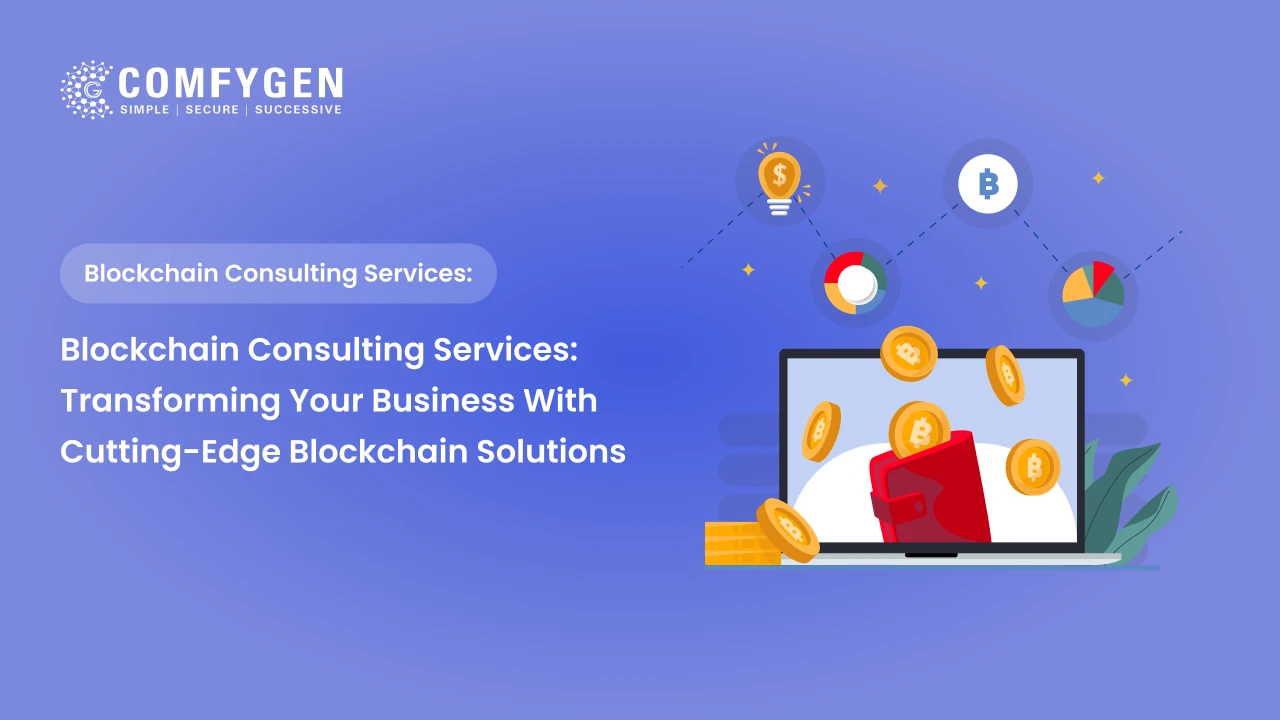
Blockchain Consulting Services: Transforming Your Business with Cutting-Edge Blockchain Solutions
Introduction Blockchain technology is revolutionizing industries by providing secure, decentralized, and transparent solutions. As businesses across the world explore their potential,…

